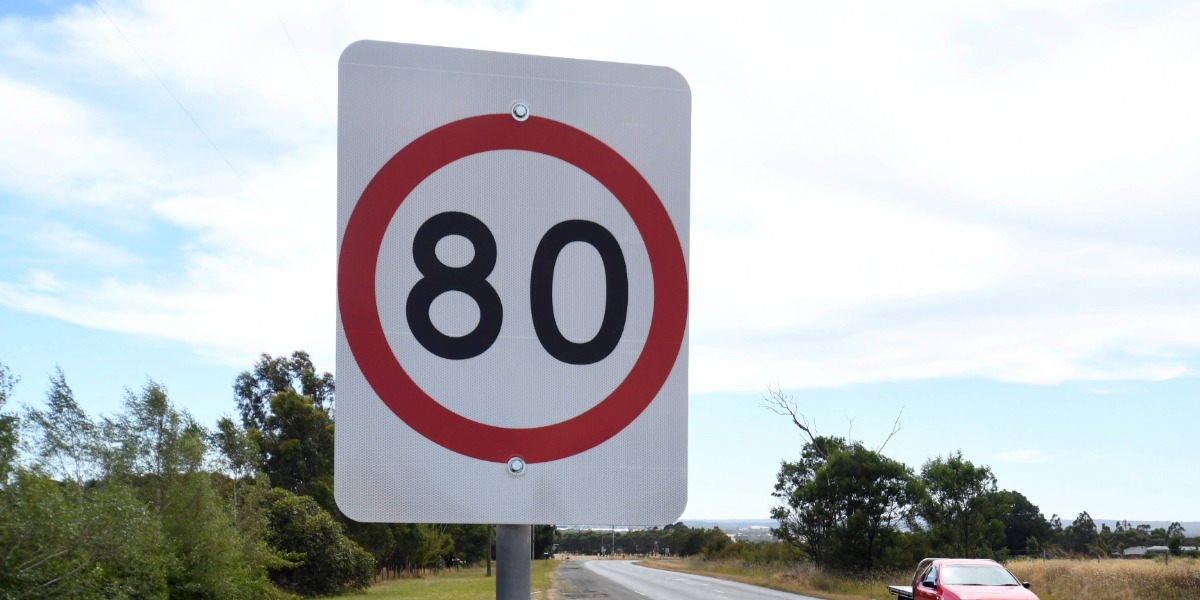Rural and regional councils across New South Wales have come out strongly against a Federal Government proposal to reduce default speed limits on country roads by 30 kilometres per hour.
The proposal, which would see the default limit on unposted roads drop from 100km/h to as low as 70km/h, has been met with widespread criticism from the Country Mayors Association of NSW (CMA). It follows similar condemnation by Member for Parkes Jamie Chaffey and others, and most local councils in the region are encouraging locals to have their say on the proposal.
CMA Chairman and Temora Shire Mayor Rick Firman OAM said the plan was “beyond excessive” and failed to consider the realities of rural and regional driving.
“Speed kills and, like the Australian Government, we acknowledge that. The desire to reduce deaths and injuries on our roads is something we all share,” Mayor Firman said. “However, the proposal to reduce the ‘default’ speed limit from 100km/hr to as little as 70km/hr and the application of a lower speed limit for unsealed roads is beyond excessive and lacks genuine consideration for key concerns for those who actually drive the roads where default speed limits apply.”
He added that the data used to justify the proposal did not specifically refer to unposted or unsealed roads, and warned that lower speed limits could actually increase driver fatigue by extending travel times.
“Lowering default speed limits will obviously increase travel times, exacerbating the tyranny of distance issues that impact on those living in smaller towns and villages, increasing their sense of isolation,” he said. “They’re talking about increasing the travel time to medical attention by 20–30 per cent. That could have critical, even life-threatening outcomes.”
The CMA has also raised concerns about the economic impact of slower travel speeds on freight and logistics, warning that costs for producers and freight operators could rise, supply chains could become less efficient, and consumers might face higher prices.
“The consequences of a significantly lower default speed limit would be renewed pressure on truck drivers to drive for longer and a greater push for increased truck tonnage allowances, resulting in negative impacts on the road conditions,” Mayor Firman said.
The association also warned that the proposal could undermine confidence in the legitimacy of road safety policy, particularly given the absence of any commitment to improving rural road infrastructure.
“There are concerns that policing resources would be over-burdened because few in remote areas would respect such an excessive speed reduction,” Mayor Firman said.
“A one-size-fits-all approach to default speed limits for rural roads could be seen as so ridiculous by road users that Country Mayors anticipate low compliance expectations.”
Mayor Firman said local councils, which are responsible for most roads where default limits apply, are not in a financial position to bear the cost of implementing the change.
“The Australian Government will need to inject significant resourcing for the implementation of the proposed speed limit reductions, for signage, education campaigns, and more,” he said.
Despite the concerns, the CMA welcomed assurances from NSW Minister for Roads and Regional Transport Jenny Aitchison that the state government will engage in genuine consultation with councils and communities before any changes are made to NSW road rules.
“Our Board and Members are very disappointed, to be frank, at what appears to be an alarming disconnect between our Australian Government and the real-world experience of using our rural, remote, and regional roads,” Mayor Firman said.
“We trust these submissions will enlighten those behind this excessive and unrealistic proposal and encourage them to rethink it.”
Got something you want to say about this story? Have your say on our opinion and comment hub, New England Times Engage

